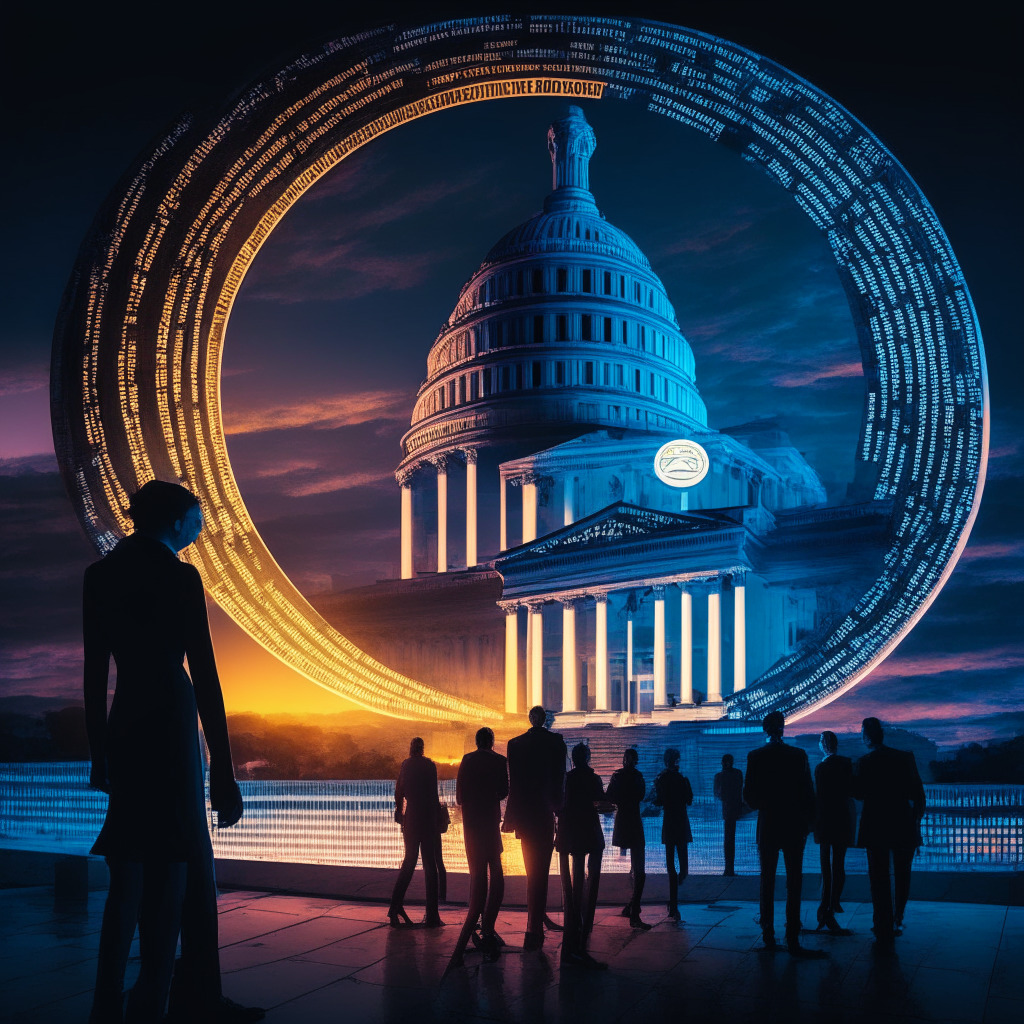A significant recent development swept through the crypto space, as popular trading platform Robinhood (HOOD) reached an agreement with the United States Marshal Service (USMS). In an unprecedented move, it plans to buy back a whopping $605.7 million in stock previously owned by Sam Bankman-Friend, founder of the now insolvent crypto exchange FTX.
The story gained prominence around the start of the year when the U.S. government extracted 55 million HOOD shares owned by Bankman-Fried and his associate, co-founder of FTX, Gary Wang. These shares were held through their company, Emergent Fidelity Technologies.
This unorthodox operation tails a narrative of governmental control and jurisdiction in the sprawling sphere of cryptocurrency. To some, it could symbolically mark a shift towards regulatory consensus – offering more protection to investors and maintaining market longevity. However, to others, it sets a wary precedent with potential ripple effects that could disrupt the very principles cryptocurrencies are built on – decentralization and immunity from governmental manipulation.
The share repurchase agreement, approved by the U.S. District Court for the Southern District of New York on Aug. 28, could not be ignored in the market. As soon as news broke from the U.S. Securities and Exchange Commission on Aug. 30, Robinhood shares soared around 3% to reach $11.21 during Friday’s early trading session.
While the move is being hailed by some as a prudent one, taking into account long-term market stability in a practical fashion, critics question its potential ripple effect over the crypto market. Some even warn of the possibility of an insidious erosion of the fundaments of cryptocurrencies.
Then again, there’s no denying the tangible benefits this sort of regulatory action promises. Ensure investor protection, pave the way for a regulated crypto market and indirectly fuel the mass adoption of cryptocurrencies by encouraging trust in such systems.
Nonetheless, this bold move by the trading platform leads to interesting questions – Could this somehow shape the future of crypto regulation? Or would the potential pitfalls significantly outweigh the practical benefits? Furthermore, how might this feed into the grander scheme of crypto, driven by principles diametrically opposite to traditional markets like autonomy, no state control and absolute privacy?
While it’s too early to draw firm conclusions, the incident presents a fascinating case study of the challenges and opportunities at the intersection of tradition and revolution-a realm where financial markets meet blockchain technology.
Source: Coindesk




